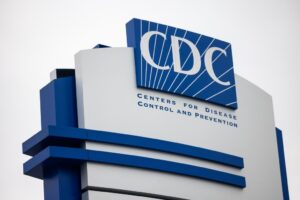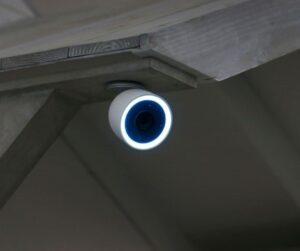The Centers for Disease Control and Prevention (CDC) is likely the last agency most people would expect to be involved in surveilling Americans. Yet, according to reports, this is precisely what occurred during the COVID-19 pandemic. The CDC reportedly purchased data from tracking companies to assess compliance with COVID-19 restrictions, according to contracts with those firms. While some might shrug off the details of this story as benign, those who are concerned about the erosion of liberties should take notice.
The CDC Gets into the Surveillance Game
Reports reveal that the CDC paid big bucks to access location data for at least 55 million Americans while the pandemic was in full swing. In fact, they paid one firm $420,000 and another $208,000 to procure this information. The Epoch Times reported:
“The contracts, approved under emergency review due to the COVID-19 pandemic, were aimed at providing the CDC ‘with the necessary data to continue critical emergency response functions related to evaluating the impact of visits to key points of interest, stay at home orders, closures, re-openings and other public health communications related to mask mandate, and other merging research areas on community transmission of SARS-CoV-2.”
This story was initially broken by Vice, who explained that “[l]ocation data is information on a device’s location sourced from the phone, which can then show where a person lives, works, and where they went.” Vice’s report also notes that the data the CDC purchased was “designed to follow trends that emerge from the movements of groups of people.” However, some have “raised concerns with how location data can be deanonymized and used to track specific people.”

(Photo by Nathan Posner/Anadolu Agency via Getty Images)
The CDC claims it was using the data to “assess home-by-hour behaviors (i.e. curfew analysis) by exploring the percentage of mobile devices at home during specific period of time.”
The data was also combined with other information “to provide a comprehensive picture of movement/travel of persons during the COVID-19 pandemic to better understand mandatory stay-at-home orders, business closure, school re-openings, and other non-pharmaceutical interventions in states and cities.”
As an example, the CDC explained that it could use the data to connect lockdown orders for bars and restaurants with the rate of COVID-19 infections and deaths. It could also evaluate the efficacy of state restrictions when it comes to close contact between people outside the home and monitor compliance with quarantine mandates and recommendations.
Scott Pauley, a spokesman for the CDC, told the Epoch Times that “the insights derived from these data provide essential information on the impact and effectiveness of policies and COVID-19 mitigation measures…that had profound effects on communities.” Pauley also claimed the data provides “important insights to protect public health” and could “shed important light on other pressing public health problems, like natural disaster response, and toxic environmental exposures.”

(Paul Chinn/The San Francisco Chronicle via Getty Images)
“CDC does not and could not use these data for monitoring compliance with COVID-19 orders or individual tracking,” he stressed.
A Question of Liberty
Wasn’t the CDC merely trying to better understand the coronavirus to protect public health? Of course, they were – and the agency also has a great deal for you on some prime oceanfront property in Wyoming.
The CDC would not be the first federal agency to pay private organizations to monitor Americans on its behalf. A report from the Brennan Center for Justice noted, “The FBI, Department of Homeland Security, and Department of Defense have all been caught secretly purchasing cell phone location information, as well as other sensitive consumer data.” It continues:
“In the absence of such oversight, federal agencies are using purchased data to target already vulnerable communities. For example, leaked documents revealed that at least two branches of DHS — Customs and Border Protection and Immigration and Customs Enforcement — bought cell phone location data. In addition, ICE has reportedly purchased utility data, as well as information from private license plate reader databases. The agencies tracked migrant groups and targeted individuals for immigration enforcement using this information.”
This revelation might set off some alarm bells for those leery of Big Brother – even if it’s supposedly for our own good. The fact that people have raised concerns about the reality that the agency could deanonymize the data and identify actual human beings shows how slippery this particular slope can get. Since the federal government is ostensibly barred from conducting surveillance on Americans directly, it appears they are simply outsourcing their peering eyes.
Do you have an opinion about this article? We’d love to hear it! If you send your comments to [email protected], we might even publish your edited remarks in our new feature, LN Readers Speak Out. Remember to include the title of the article along with your name, city, and state.
Please respect our republishing guidelines. Republication permission does not equal site endorsement. Click here.

